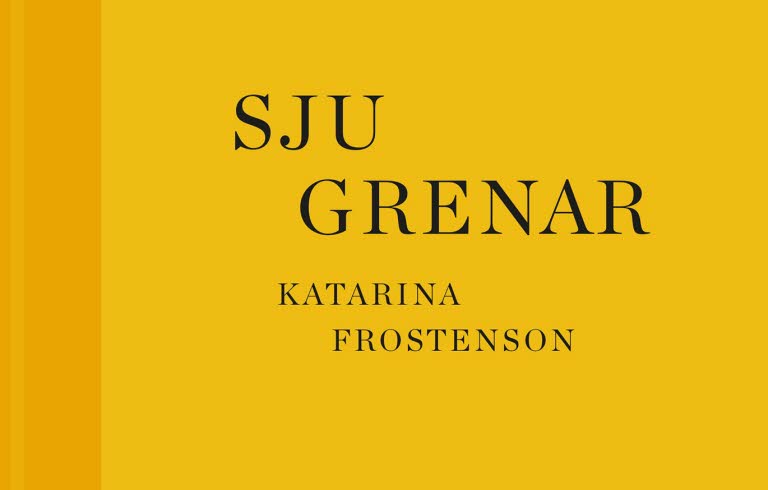Katarina Frostenson: Seven Branches
In the second contribution in our series Translator’s Choice Brad Harmon, who translates into English, highlights the contemporary highly acclaimed poet Kristina Frostenson.
The translator's choice
Katarina Frostenson: Seven Branches
Even though Katarina Frostenson maintains a canonical status is Swedish literary history, her work has never been translated into English, save for a handful of poems. There are few poets that can truly write the linguistic texture of being so powerfully and tactile as Frostenson. I first approached Frostenson’s poetry from a philosophical perspective and I believe that her way of writing poems has much to contribute, not just to Anglo-American conversations on writing poetry, but also philosophy and literary studies.
Frostenson’s latest poetry collection Seven Branches reflects a mediative gaze towards society, experience and simply being in the world and on earth. Sprinkled across its pages are reminders of and insights into being a contemplative person in a modern epoch. But don’t forget: “The world is always here” – one of many deceptively provocative statements that reappear throughout the book.
About the translator

Brad Harmon is a nonfiction writer, PhD student and translator from German and Swedish into English. His first book translation from Swedish is Måns Mosesson’s Tim: The Official Biography of Avicii. He is writing a book on Nordic cultural histories of nature and a dissertation on rhythm and breathing in Nordic and German poetry.
Katarina Frostenson (b. 1953)
Works
- I mellan, poetry, 1978
- Flodtid, poetry, 2011
- 4 monodramer, drama, 1990
- Sånger och former, poetry, 2015
Awards
- De Nios Stora Pris, 1989
- Litteris et Artibus, 2007
- The Nordic Council Literature Prize, 2016
The book
Sju grenar, poetry, 2018, 161 p.
Publisher
Wahlström & Widstrand
Rights
Katarina Frostenson



